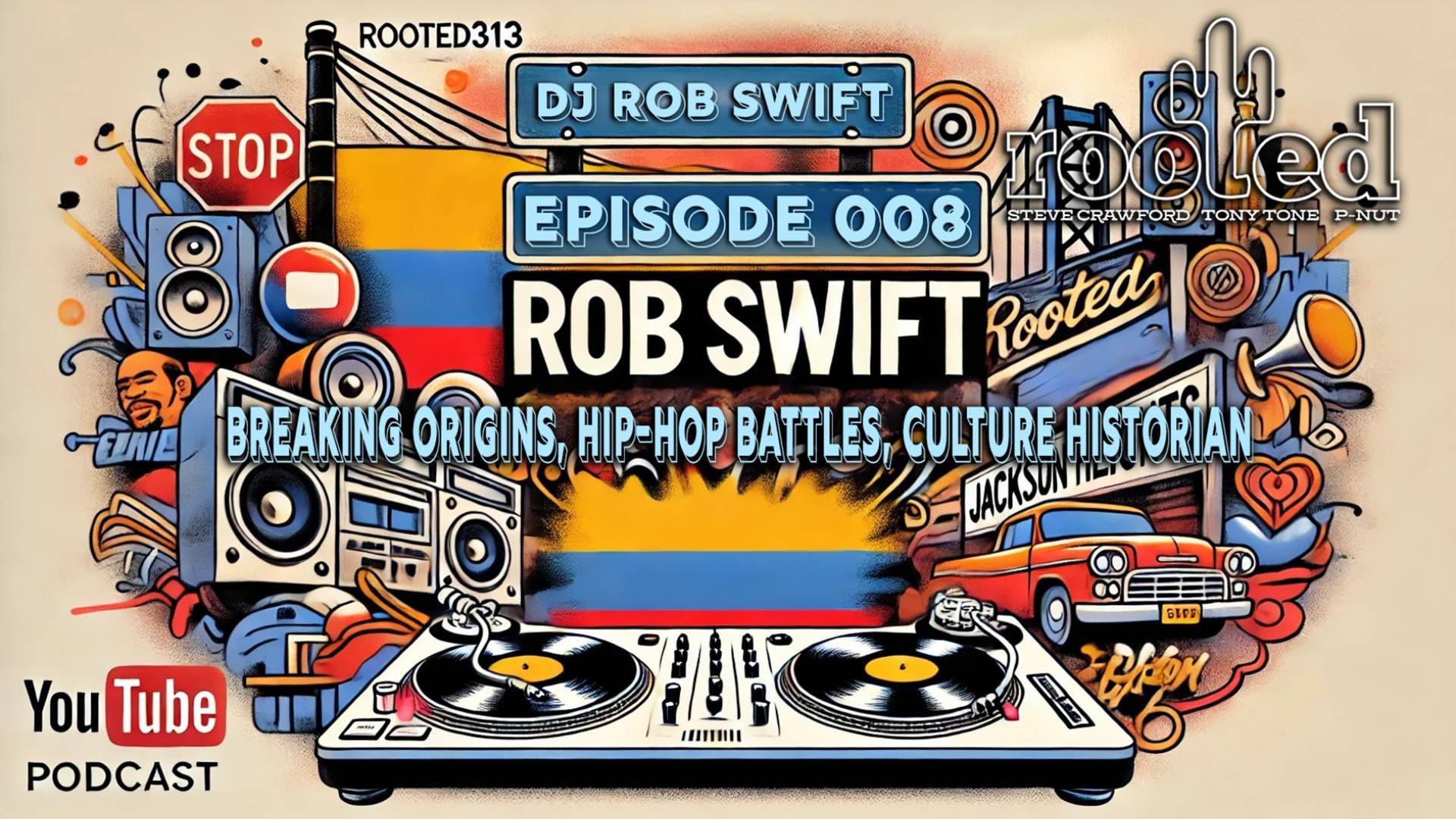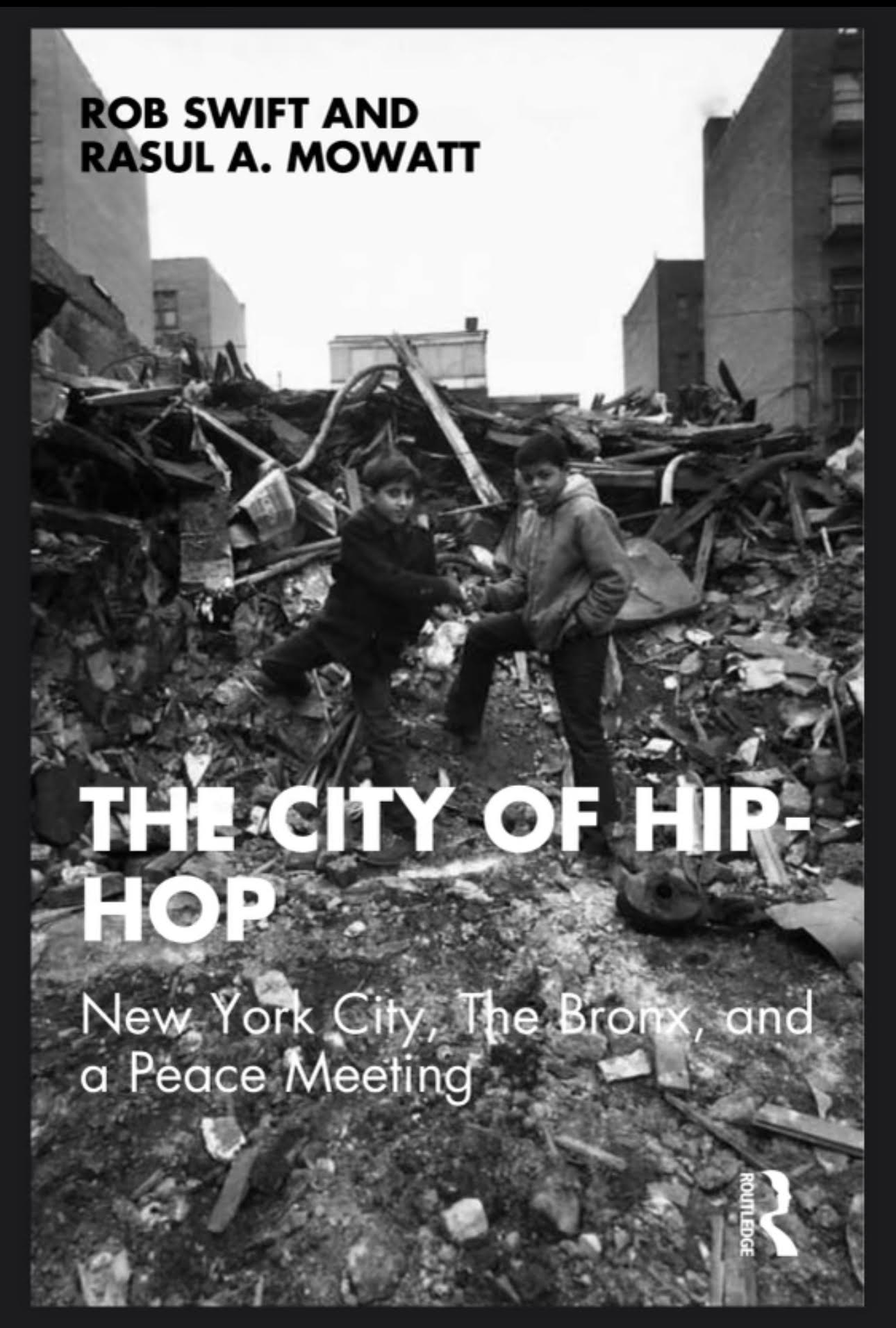Rooted 313 Podcast DJ Culture and Beyond (featuring DJ Rob Swift)

Hip-hop has existed for half a century, and people still don’t understand it. Even some of its figureheads fail to fully grasp the spirit of a subculture that evolved in response to various social, economic, and political issues in American society, specifically in the Bronx, NY, during the 1970s.
Whether you’re a breaker, DJ, rapper, or writer, interacting with any or all of hip-hop’s elements, like I did as a youth, was our way of saying we had just as much a right to express ourselves creatively as any formal musician, dancer, or singer. We mattered despite the unconventional tools (turntables, cardboard boxes, or one side of a headphone ear cover for a mic) we used to communicate that sentiment.
So it is ironic that the early spirit of hip-hop was “if you’re creative, you can be down,” despite the color of your skin, has succumbed to exclusion based on race and ethnicity courtesy of people who’ve been historically disenfranchised themselves in the present times, and that is so not hip-hop!
A jigsaw puzzle is complete once the puzzle maker tethers every piece together. Some pieces have straight edges and frame the puzzle, while others help spell out the puzzle’s words or complete intricate details. Old, worn, simple pieces can make the picture’s core. Each piece is valuable because it allows surrounding pieces to connect. When you put together the puzzle of Hip-Hop, you don’t exclude, dismiss, or take for granted any of the pieces. The unique pieces make the puzzle complete because every piece is significant!
It’s important for practitioners and fans to be aware that underneath the flashy, hyper-sexualized image of hip-hop today, there’s a deeper philosophical core to this counterculture. However, many people discussing it on social media miss this point. The famous hip-hop slogan ‘The Benjamins’ has been around since the late 1990s, but the authentic hip-hop in art today and in real life in the past are quite different. To understand this contrast, you must challenge your perceptions and be willing to explore where Hip-Hop comes from.
One of the lesser-known aspects of hip-hop in 2024 is the intricate relationship between poverty and creativity. I recently had the opportunity to delve into how underprivileged youth worldwide have channeled their creativity with minimal resources but a wealth of passion.
This week, the Rooted 313 Podcast premieres a new episode in which I will appear as a guest to discuss the beautiful culture of hip-hop. If you’re a Brolic Army DJ School student, your homework assignment is to watch it.
Lastly, don’t miss the chance to pre-order a copy of “The City of Hip Hop: New York City, the Bronx, and a Peace Meeting,” a book that’s set to significantly contribute to the understanding of hip-hop culture. Co-authored by Rasul Mowatt and published by Routledge, it’s a must-read for all hip-hop enthusiasts.

Previous
Brolic Army Soldier DJ Decktektive wins the Victorian DMC DJ Championship
Next

